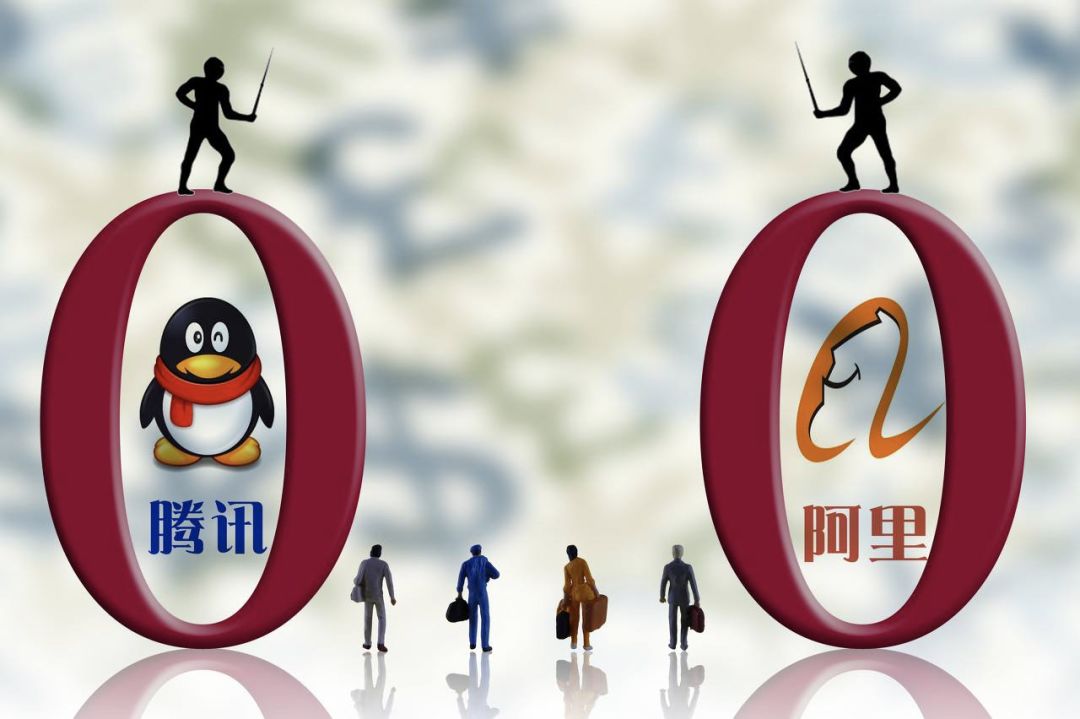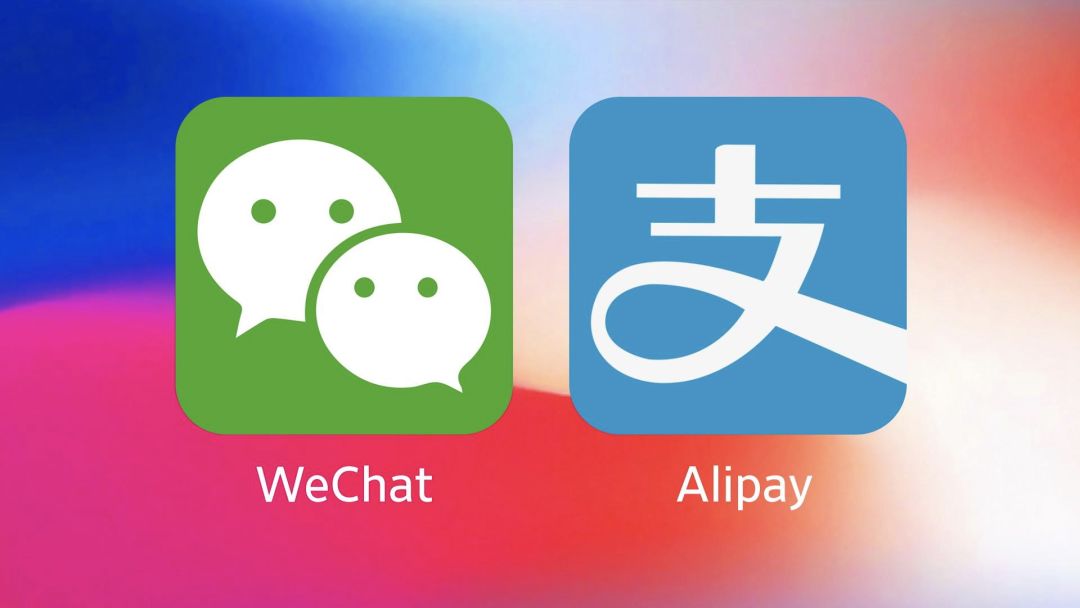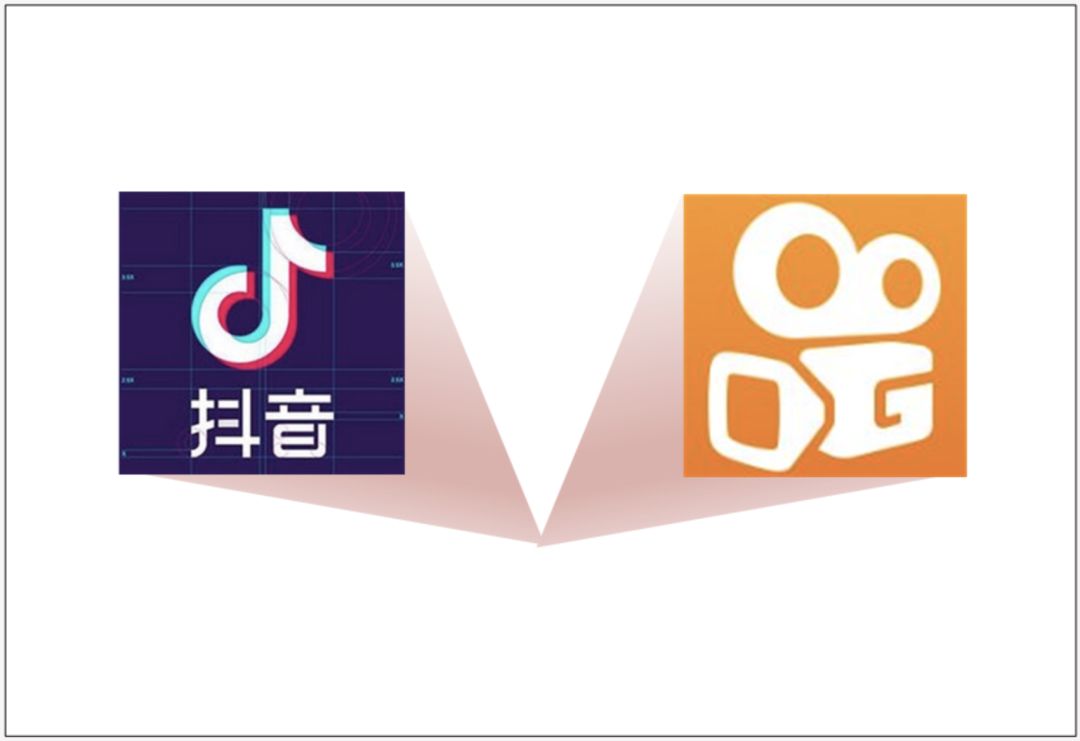Global economic growth is sluggish in 2019, but the pace of Chinese companies going overseas has not been hindered.
Editor’s note: This article comes from WeChat public account “志 象 网” ( ID: passagegroup), author Chen Yanni, editor Li Xiaomeng; authorized to publish.
The global economic growth in 2019 is sluggish, but the pace of Chinese companies going overseas has not been hindered. Alibaba and Tencent, as representatives of the Chinese Internet giants, frequently move in Indian, Southeast Asian and Latin American markets. Here, we focus on the overseas actions of Tencent and Alibaba, involving investment, payment and other fields.
Because of the strength of Chinese players in the fields of short video and travel, the inventory has been added to companies such as Byte Beat, Quick Hand, Meituan Review, Didi Travel.
Tencent vs Ali
In 2019, Tencent is still active in the venture capital circle, with no less than 9 global lead investments and participations, of which India and Latin America are the most popular markets. In India, Tencent has invested in four startups and unicorns in one breath, and two payment and fintech companies in Latin America.
Alibaba was relatively cautious during the year, investing only 6 in the global market, 3 of which were concentrated in the Indian market.
Take India as an example. Many people regard India as China decades ago, and Internet companies have seized the early Internet dividends of the Indian market.
Tencent and Ali’s investment in India is “pervasive.” In 2019, Tencent will continue to focus on investing in entertainment, education and other areas that it is good at. Tencent can be seen in the investor list of the Indian version of iQiyi MX Player and the online education market unicorn Byju ’s.

However, changes are quietly brewing. In the second half of the year, Tencent began to try to “invade” Ali ’s dominant territory—B2B e-commerce and B2B financial technology.
In October, Tencent successively invested in two B2B platforms—e-commerce Udaan and merchant bookkeeping service platform Khatabook.
Udaan’s business is more like “the middleman makes a difference”, it purchases supplies from small manufacturers, factories or farmers, and sells them to B-end customers such as community stores, restaurants, street vendors and so on.
KhatabookStarting from bookkeeping services, small and medium businesses use its digital ledger and transaction payment services to simplify accounting operations. As of April 2019, there are already more than 12,000 active merchants on the Khatabook platform.
Ali, whose territory has been “invaded,” naturally cannot wait. The entertainment field is a breakthrough, and B2B is also a direction for cohesion.
Compared with Tencent, which only entered the field of streaming video in 2019, Ali’s layout is obviously much earlier.
In May, Ali invested in Vmate, a short video content community incubated by UC. It had already landed in India at the end of 2017. When it was included in the Ali Innovation Business Group two years later, it already had 30 million monthly active users.
In addition to the layout of short video products facing the C side, Ali also started to move on the upstream B side. At the beginning of the year, Ali invested in Indian B2B video data analysis company Vidooly. The company provides video tag suggestions, best upload time, search ranking analysis, competitor tracking, user behavior analysis and other services for digital media portals, YouTube content creators, and brands.
Of course, e-commerce veterans ca n’t forget that Ali invested in BigBasket, the “Indian version of Daily Fresh”, which is the third time Ali has raised. BigBasket adopts the “heavy operation” model of its own built-in storage system, with business scope covering 26 cities in India, and mainly delivers fresh goods within 3-4 hours.
WeChat Pay vs Alipay
2 years ago, the French brother, Steel Egg, who had lived in China for 8 years, called Ma Huateng in the video and wanted to use WeChat to pay in France. “In China, you can pay by scanning the QR code with your mobile phone. To use a bank card and cash is too stupid and too backward. “
A year later, Ma Huateng really brought WeChat to Europe.

In addition to WeChat payment, the mini program and public account are also brought to Europe. In January, WeChat Pay partnered with European department store BHV Marais to help European stores improve their service to Chinese customers. Major European brands such as Dior, Armani, etc. have settled in WeChat public accounts and used small programs.
The data released by the WeChat team shows that as of December 2019, WeChat Pay’s coverage in overseas compliance countries and regions has increased to 60, supporting direct settlement in 16 different currencies. The daily activity of applets overseas increased by 200%, and the number of applets visited in Europe doubled.
AlipayThe transcripts submitted in 2019 are not to be outdone. In February, Ant Financial Group acquired WorldFirst, a long-established British cross-border payment company, and added a “local version” of Alipay overseas. As of now, Alipay has 9 localized versions of Alipay in the Belt and Road countries, such as Paytm in India and bKsah in Bangladesh.
The idea of WeChat Pay and Alipay’s external promotion is similar. One is to provide payment and tax refund services to Chinese outbound travel users; the other is to apply for payment licenses in overseas countries or regions and provide localized electronic wallet services.
Outside the highly competitive European battlefield, Tencent turned around and opened up another battlefield in Latin America.
Latin America has a large population that does not yet have a bank account. According to 2017 data from the World Bank, in Argentina alone, at least 10 million people have no bank account. This means that Latin American fintech companies and the payment market have great potential.
In 2019, Tencent’s Latin American payment landscape has fallen again, and together with Argentina’s mobile payment company Uala, it has helped develop savings products. Uala also includes major businesses such as prepaid debit cards, transfers, digital payments, savings, and lending. Its founder and CEO Barbieri said “the WeChat payment ecosystem has a lot to learn. Tencent’s investment is to bet on Argentina for the next 10 years.”
In Brazil, Tencent is targeting Nubank, the first unicorn in Latin America, to participate in its Series F financing. Nubank is the first unicorn in Latin America to offer virtual credit cards and digital payment services in Brazil. Previously, Tencent had injected $ 180 million into it.
Byte beating vs fast hand
In 2019, Byte Beat has continued to move abroad, and its layout has expanded from C to B, covering short video, music streaming and overseas enterprise service markets. TikTok handed in a transcript of $ 177 million in revenue in 2019. The situation seems to be good, but ByteDance’s other overseas products, TopBuzz and Vigo Video, are facing the situation of sale or suspension.

In mid-December, ByteDance launched new music streaming media application Resso in India and Indonesia. Users can use Resso to play lyrics in real time and leave comments under the songs. They can also use music accompaniment to make animations and videos. Resso’s features are seen as a complement to TikTok, with streaming giant SpotifyConfrontation with Apple Music; can also partially solve the music copyright issue of short videos. So far, Byte Beat has signed the rights of Indian record labels T-Series and Times Music.
In the Indian market, TikTok has begun to enter the education market. In the capital New Delhi, an education project, EduTok, has been announced. According to TechCrunch, TikTok has begun working with Indian education companies to produce educational short videos covering science, math, language, life skills, inspirational, tool assessment and other fields.
In 2019, TikTok’s annual revenue was US $ 177 million, and China’s revenue accounted for 69%. According to LatePost, TikTok is targeting the Brazilian market. September is its scheduled Brazilian market inspection month, and the focus of the team in October then falls on the Brazilian market. The growth trend of the Brazilian market is also listed in Zhang Yiming’s OKR. Accordingly, the personnel of TikTok Brazil’s national operations team was adjusted accordingly. After the merger of BYTE’s overseas products Vigo and TikTok, Vigo’s Brazilian market leader became the head of TikTok’s national operations.
In overseas markets, there is a defeat when there is an attack. In September, the US technology media The Information said that the byte beat was ready to be transferred to TopBuzz, and a small number of potential buyers such as US media companies were negotiating purchases. It is reported that in the future, byte-beating international business resources will tilt more towards short video services such as TikTok.
In addition to the “bad news” of TopBuzz, the overseas version of the volcano video Vigo Video also announced the suspension of operations in the Middle East. Some media said that some live broadcast announcements in the Middle East have received the announcement that Vigo’s operation team officially stopped operations on December 31. At the same time, the live broadcast rights of all guild anchors will be closed at the end of 2019. The announcement stated that the change was based on the company’s “strategic adjustment.”
Brazil happens to be the main foreign player. Kuaishou overseas strategy and departments experienced the turmoil in 2018, and the pace of conversion in 2019 has caught up, and Kuaishou international version Kwai reached 7 million DAU in Brazil.
Kwai International International has launched a localization feature in Brazil that allows users to share videos to Whatsapp. In November, Kuaishou also launched the “Creator Recruitment Program” in Brazil, and launched a comprehensive content recruitment for YouTuber, Instagram creators and folk artists. Relevant person in charge of Kwai told local media that the DAU in Brazil currently reaches 7 million.
According to information from mobile data and analysis company App Annie, as of October, based on data from Google Play and the App Store, Kwai International Edition ranks 5th in mobile downloads in Brazil this year, and the top 4 are social categories such as Facebook application.

2 years ago, the French brother, Steel Egg, who had lived in China for 8 years, called Ma Huateng in the video and wanted to use WeChat to pay in France. “In China, you can pay by scanning the QR code with your mobile phone. To use a bank card and cash is too stupid and too backward. “
A year later, Ma Huateng really brought WeChat to Europe.

In addition to WeChat payment, the mini program and public account are also brought to Europe. In January, WeChat Pay partnered with European department store BHV Marais to help European stores improve their service to Chinese customers. Major European brands such as Dior, Armani, etc. have settled in WeChat public accounts and used small programs.
The data released by the WeChat team shows that as of December 2019, WeChat Pay’s coverage in overseas compliance countries and regions has increased to 60, supporting direct settlement in 16 different currencies. The daily activity of applets overseas increased by 200%, and the number of applets visited in Europe doubled.
AlipayThe transcripts submitted in 2019 are not to be outdone. In February, Ant Financial Group acquired WorldFirst, a long-established British cross-border payment company, and added a “local version” of Alipay overseas. As of now, Alipay has 9 localized versions of Alipay in the Belt and Road countries, such as Paytm in India and bKsah in Bangladesh.
The idea of WeChat Pay and Alipay’s external promotion is similar. One is to provide payment and tax refund services to Chinese outbound travel users; the other is to apply for payment licenses in overseas countries or regions and provide localized electronic wallet services.
Outside the highly competitive European battlefield, Tencent turned around and opened up another battlefield in Latin America.
Latin America has a large population that does not yet have a bank account. According to 2017 data from the World Bank, in Argentina alone, at least 10 million people have no bank account. This means that Latin American fintech companies and the payment market have great potential.
In 2019, Tencent’s Latin American payment landscape has fallen again, and together with Argentina’s mobile payment company Uala, it has helped develop savings products. Uala also includes major businesses such as prepaid debit cards, transfers, digital payments, savings, and lending. Its founder and CEO Barbieri said “the WeChat payment ecosystem has a lot to learn. Tencent’s investment is to bet on Argentina for the next 10 years.”
In Brazil, Tencent is targeting Nubank, the first unicorn in Latin America, to participate in its Series F financing. Nubank is the first unicorn in Latin America to offer virtual credit cards and digital payment services in Brazil. Previously, Tencent had injected $ 180 million into it.
Byte beating vs fast hand
In 2019, Byte Beat has continued to move abroad, and its layout has expanded from C to B, covering short video, music streaming and overseas enterprise service markets. TikTok handed in a transcript of $ 177 million in revenue in 2019. The situation seems to be good, but ByteDance’s other overseas products, TopBuzz and Vigo Video, are facing the situation of sale or suspension.

In mid-December, ByteDance launched new music streaming media application Resso in India and Indonesia. Users can use Resso to play lyrics in real time and leave comments under the songs. They can also use music accompaniment to make animations and videos. Resso’s features are seen as a complement to TikTok, with streaming giant SpotifyConfrontation with Apple Music; can also partially solve the music copyright issue of short videos. So far, Byte Beat has signed the rights of Indian record labels T-Series and Times Music.
In the Indian market, TikTok has begun to enter the education market. In the capital New Delhi, an education project, EduTok, has been announced. According to TechCrunch, TikTok has begun working with Indian education companies to produce educational short videos covering science, math, language, life skills, inspirational, tool assessment and other fields.
In 2019, TikTok’s annual revenue was US $ 177 million, and China’s revenue accounted for 69%. According to LatePost, TikTok is targeting the Brazilian market. September is its scheduled Brazilian market inspection month, and the focus of the team in October then falls on the Brazilian market. The growth trend of the Brazilian market is also listed in Zhang Yiming’s OKR. Accordingly, the personnel of TikTok Brazil’s national operations team was adjusted accordingly. After the merger of BYTE’s overseas products Vigo and TikTok, Vigo’s Brazilian market leader became the head of TikTok’s national operations.
In overseas markets, there is a defeat when there is an attack. In September, the US technology media The Information said that the byte beat was ready to be transferred to TopBuzz, and a small number of potential buyers such as US media companies were negotiating purchases. It is reported that in the future, byte-beating international business resources will tilt more towards short video services such as TikTok.
In addition to the “bad news” of TopBuzz, the overseas version of the volcano video Vigo Video also announced the suspension of operations in the Middle East. Some media said that some live broadcast announcements in the Middle East have received the announcement that Vigo’s operation team officially stopped operations on December 31. At the same time, the live broadcast rights of all guild anchors will be closed at the end of 2019. The announcement stated that the change was based on the company’s “strategic adjustment.”
Brazil happens to be the main foreign player. Kuaishou overseas strategy and departments experienced the turmoil in 2018, and the pace of conversion in 2019 has caught up, and Kuaishou international version Kwai reached 7 million DAU in Brazil.
Kwai International International has launched a localization feature in Brazil that allows users to share videos to Whatsapp. In November, Kuaishou also launched the “Creator Recruitment Program” in Brazil, and launched a comprehensive content recruitment for YouTuber, Instagram creators and folk artists. Relevant person in charge of Kwai told local media that the DAU in Brazil currently reaches 7 million.
According to information from mobile data and analysis company App Annie, as of October, based on data from Google Play and the App Store, Kwai International Edition ranks 5th in mobile downloads in Brazil this year, and the top 4 are social categories such as Facebook application.
